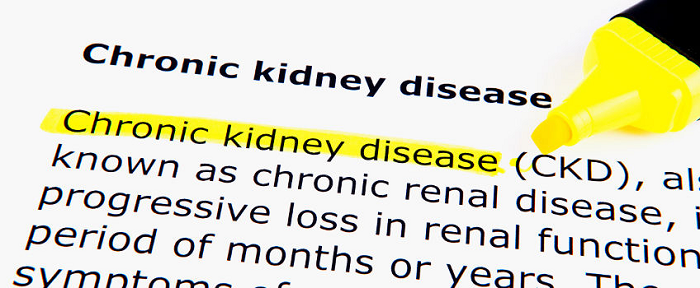
Managing the chronic kidney disease patient
Chronic Kidney Disease (CKD) is the progressive loss of kidney function over a period of at least three months with associated decrease in glomerular filtration rate (the rate which the kidneys filter blood), presence of albumin in the urine (albuminuria) or abnormal kidney structure.
Advertisement
The kidney has many functions. It maintains a balance of fluid and electrolytes in the blood such as sodium, potassium and phosphate. It also excretes metabolic waste such as creatinine and urea from the blood. It produces hormones that regulate many metabolic activities such as the production of red blood cells and calcium absorption from food.
In CKD, the ability to perform these functions is significantly reduced. This results in the accumulation of excess fluid, electrolytes and metabolic waste in the blood, leading to many complications such as heart diseases. The ability to produce hormones is also affected and may result in complications such as anaemia and weak bones as the disease progresses.
One major approach to managing CKD is through the food we eat. This is because the nourishment that we obtain from food such as proteins, fats and carbohydrates helps patients to stay strong enough to delay the progression of the disease. Also, and most importantly, most of the metabolic waste, which the kidney must excrete from the blood, such as sodium, potassium, phosphate (phosphorus), creatinine and urea are end products of nutrient metabolism.
Foods that have high amounts of these nutrients in them are mostly restricted (reduced) in the diets of CKD patients as the disease advances.
A major dietary component implicated is protein-rich foods such as meat, egg, chicken, beans, milk, groundnuts, etc. because of their associated metabolic waste urea and creatinine. It is recommended for normal healthy adults that a total of 0.8g/kg (of your body weight) of protein be consumed each day. That is the equivalent of 2-3 small match-box sizes (or the size of a ‘card’ used for playing card games) of meat or fish, or one standard drumstick of chicken, in three meals a day. In CKD, however, this may be reduced to 0.6g/kg (of your body weight) per day. This may translate to 1-2 small match-box size of protein per meal, 3 meals a day, as the disease advances.
In order not to put these patients at risk of protein energy malnutrition due to the reduced amount of protein intake, they are usually advised to choose protein-rich foods which have high biological value. These are proteins foods that have the essential amino acids needed by the body.
Animal source proteins such as meat, milk, fish, egg, cheese, poultry have high biological value. Plant proteins such as beans, nuts and lentils, however, have relatively lower biological value compared to animal proteins and are, therefore, discouraged in CKD management since they may not meet the protein requirements of the patient.
Phosphorus is another nutrient whose metabolism is impaired in CKD. As the disease progresses, the kidneys further lose their ability to excrete excess phosphorus from the blood. It, therefore, accumulates and becomes toxic to the body with resultant complications such as itching, calcium loss from bones leading to osteoporosis, etc. Incidentally, protein rich foods from both plant and animal sources are also rich in phosphorus. Research has shown that phosphorus from animal source proteins are more easily absorbed in the human digestive tract (between 40-60% compared to 10-30%) of plant proteins. The explanation is that much of the phosphorus in plant proteins occur in the form of phytate that cannot be absorbed easily by the human gastrointestinal tract because we do not produce the enzyme phytase needed to digest it.
Theoretically, CKD patients who may be eating more plant proteins may be at lower risk of hyperphosphatemia (elevated blood phosphorus levels) compared to those on animal proteins. Some studies compared the serum phosphorus levels of CKD patients who were fed a regular meal with protein from animal sources over a week, with the same patients fed on a similar meal with plant proteins over a week (with a one-month neutral meal interval in between), and found that the serum phosphorus levels after the one-week animal protein meal was significantly higher than that after the plant protein meal. They, therefore, recommended that CKD patients should be advised on both the amount and the source of protein to consume. Other studies have shown similar results.
The paradox now is this: Should CKD patients rely more on plant proteins in order to maintain low serum phosphorus levels and risk being malnourished due to protein inadequacy (which can increase their risk of death), or should they rely more on animal proteins to ensure protein adequacy and risk having elevated serum phosphorus (which can also increase their risk of death)? In some situations, phosphate binders may be used to control blood phosphate levels, but these are not without side effects. Additionally, CKD patients should reduce their intake of processed foods and carbonated drinks. This is because they contain inorganic sources of phosphorus, usually in the form of preservatives, which are also fully absorbed (100% absorption rate) into the blood and will further complicate their situation.
We recommend that every CKD patient should consult a registered dietitian so that the best diet for their particular situation can be recommended.



